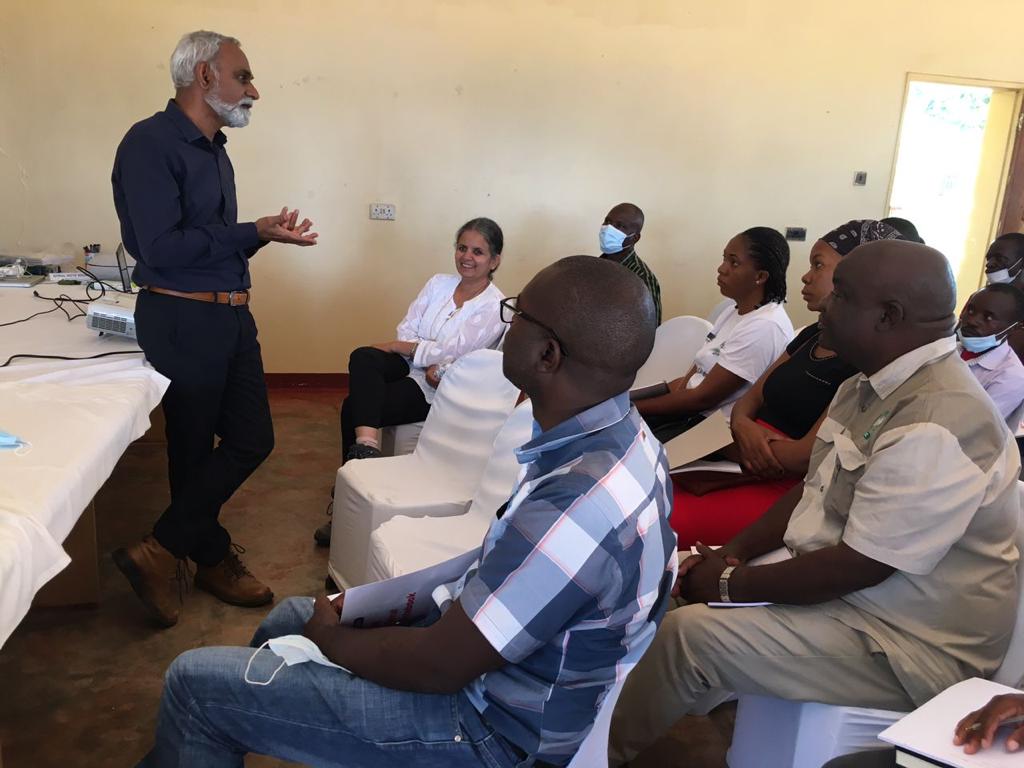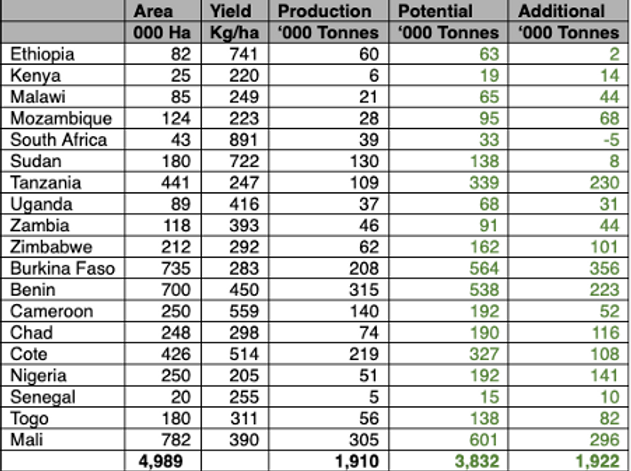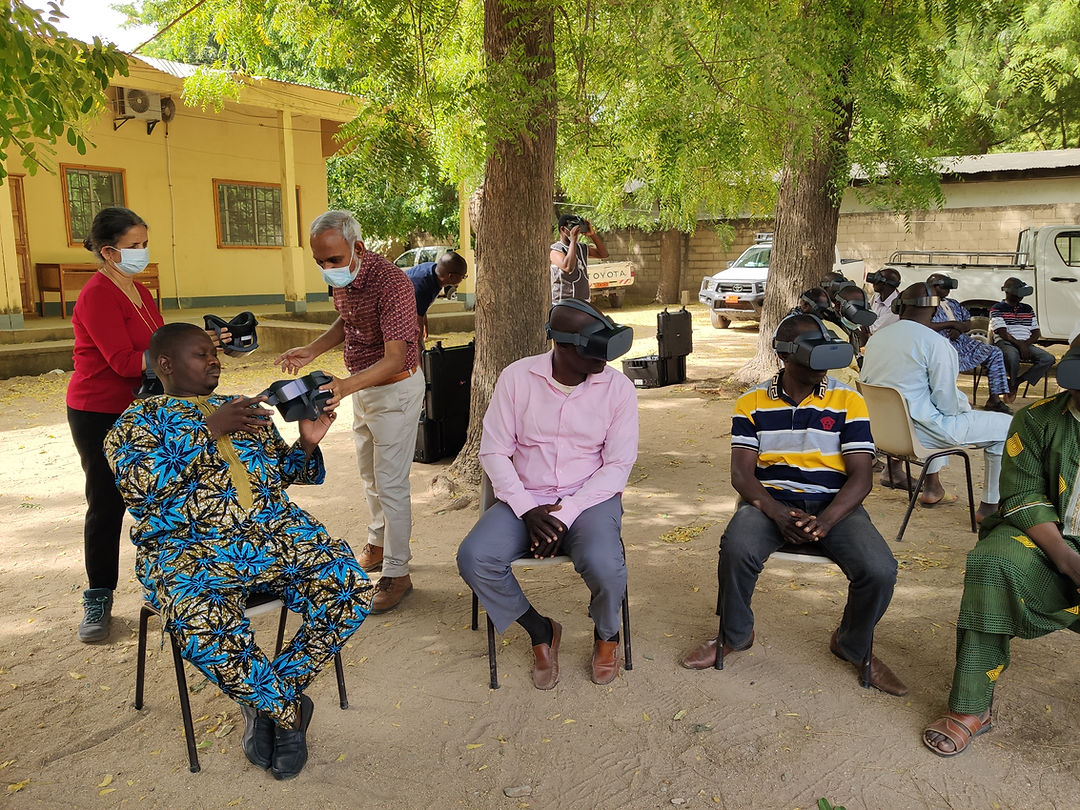
Four Steps to Sustainable High Yields Program
The ICAC has observed that the current production practices in a number of developing countries do not follow globally established best practices and need to be more environmentally, economically and socially sustainable to alleviate environmental pressures, improve water use efficiency, protect biodiversity, increase farm incomes, reduce poverty, protect human health and aid food security.
Based on our research and experience, there are four primary factors that impact sustainability:
-
Seed quality
-
Harvest index and hybrid seeds
-
Cotton stalks
-
Naturally occurring biological controls
When the Four Steps Program is followed as directed, the ICAC guarantees to double the yields in 3-5 years in most countries and in others, to at least bring them up to the current world average of 800 kg of lint per hectare.

Cotton yields in Africa average about 350 kg/ha in Africa — some of the lowest in the world. To illustrate the value of the Four Steps Program, below is a chart showing the impact the program could have in Africa. If implemented in all of those countries, the ICAC guarantees it would result in 1.9 million more tonnes of fibre each year — enough to transform the lives of millions of vulnerable people.

The Four Steps Program makes extensive use of the ICAC’s Virtual Reality Cotton Training Program’s two modules, one on Integrated Pest Management (IPM) and the other on best production practices for high yields and improved fibre quality.
ICAC member governments have access to the Four Steps to Sustainable High Yields Program free of charge; non-Members have to pay to access it for training.
